"The fight against corruption sits at the heart of the Islamic Revolution," claimed Ebrahim Raeesi, the head of Iran’s judiciary, during a meeting to assess the matter on April 29. "Fighting corruption is not and has never been separate from the revolution,” he added. According to him, it is clear that the pure and holy system of the Islamic Republic has the will to fight economic crimes, and that wherever corruption exists, it will be sought out and destroyed.
"The legislature must pass laws that close the doors of corruption on traders and abusers, the executive branch must eliminate corruption by its own methods, and the judiciary has a serious duty to fight against corruption,” Raeesi told the meeting. He called on the supervisory bodies of all three branches of power, including the Court of Audit, the Ministry of Intelligence, the Audit Office and the General Inspection Office, to be more active in the fight against corruption. These remarks alone indicate that corruption exists in the Islamic Republic. And because corruption is clearly identifiable, his statements also serve to highlight the inefficiency of anti-corruption watchdogs over the past 42 years.
So has fighting corruption really been on the Islamic Revolution's agenda for the last 42 years? Does the Islamic Republic have a defensible record in its fight against corruption? How does the country rank against other countries in terms of corruption? IranWire attempts to answer these questions.
Corruption and its Indicators
"Abuse of entrusted power for private gain" is Transparency International's simplest definition of corruption. It erodes public trust, undermines democracy, hinders economic development and exacerbates inequality, poverty, social division and environmental crisis. According to the organization, corruption can take many forms, including:
- The provision of services from government employees or the public sector in return for a bribe;
- Embezzlement by individuals or groups with access to public funds or the transfer of key positions and jobs to supporters, friends and family members;
- Assignment of profitable transactions to individuals and companies in exchange for bribes.
Transparency International outlines that these are all examples of corruption, and advocates for them to be confronted in all societies.
Corruption has measurable quantities; the prevalence and parameters of corruption within governments can be assessed using specific indicators. The World Bank defines these indicators as:
- Voice and accountability
- Political stability and absence of violence
- Government effectiveness
- Regulatory quality
- Rule of law
Controlling Corruption
Good governance includes accountability, efficiency, and robust and fair justice and political systems in which citizens can participate. Transparency also refers to free access to information, comprehensive supply of information and a strong degree of public awareness. Absence of conflicts of interest mean that an individual, group or company involved in a business deal or political arrangement does not accept gifts; does not take on employment in other companies that would gain from or influence the deal; and rejects nepotism, particularly when it comes to employment. There should be no conflict between the income earned and the duty being performed; no external business deals between the employer and the employee should exist, or between the executor of a deal and that deal’s legislator. Assessment of each of these factors could potentially help measure and identify corruption.
In its report on corruption, Iran’s Presidential Center for Strategic Studies addressed the Corruption Index and listed the following examples of corruption:
- Bribery;
- Diversion of government budgets;
- Use of government position for personal gain;
- Favoritism in the provision of municipal services;
- Systematic political corruption in which personal interests significantly influence government decisions;
- Private sector lobbying to influence government decisions in the sector’s favor.
The report also identifies steps for combating corruption, as follows:
- Effective prosecution of corrupt government officials;
- Thorough administrative processes;
- Adequate rules for financial disclosure;
- Prevention of conflict of interest;
- Access to information;
- Legal protection for journalists, individuals and groups investigating corruption.
Iran's Corruption Ranking
In 2020, Transparency International ranked Iran 149 out of 180 countries in its Corruption Perceptions Index. It gave Iran a score of 25 out of 100, indicating that the Islamic Republic is among the most corrupt countries in the world.
The average score of countries in the Middle East region is 39, which shows that Iran is not in an acceptable position even among the countries in the region. The countries in the Middle East with the highest scores for fighting corruption are the United Arab Emirates (71) and Qatar (62), which are both higher than the global average (43).
There is a direct link between democracy and the battle against corruption. The stronger the foundations of democracy in a system, the stronger the principles and values of democracy — including the rule of law, transparency, accountability, adequate auditing, freedom for civil society organizations, freedom of the media, freedom of expression, free elections and citizens’ participation in the political process — the lower corruption is in these systems. The work of these institutions, including the media, civil society organizations and regulators, all play a role in combating corruption, and, by extension, help secure freedom at the ballot box and accountability. These institutions and processes also mean government officials are less prone to corruption.
The Economist’s Democracy Index 2020 looks at the state of democracy in countries around the world based on five indicators: "electoral process and pluralism", "government efficiency", "political participation", "political culture" and "civil liberties". According to the report, the Islamic Republic of Iran, with a score of 2.2 out of five among 167 countries, is ranked 152, evidence that is not performing well when it comes to democracy and, of course, the fight against corruption.
Is There a Will to Fight Corruption in the Islamic Republic?
No. Addressing the question of how strong the will to fight corruption is in the Islamic Republic requires an in-depth look at the most important indicators of corruption and an assessment of whether efforts have been made to improve the political system of the Islamic Republic. The indicators are outlined below.
1- Transparency
Access to information is the most important criterion for transparency. How free has access to information been in the Islamic Republic over the past 42 years? The answer is clearly not very free, because Iranian parliament approved the Law on dissemination and free access to information in 2008, but after opposition from the Guardian Council, it was referred to the Expediency Council. In 2009, the law was finally approved by the Expediency Council. However, it took until 2015 until its executive bylaws were ratified, and the system required for making this access possible was not launched until July 2017. So in reality, the Islamic Republic has only recently formally recognized the right to access to information, and this recognition still doesn’t include all information. These delays have meant that in the first three decades of the Islamic Republic, there has been no law in place granting full or partial access to information.
Freedom House’s transparency assessment gives Iran a score of zero out of four. In its explanation for the ranking, the organization cites the Law on Free Access to Information, explaining that in practice, the government not only does not allow information to be made publicly available, it also manipulates information. The organization also highlights the secrecy around the downing of the Ukrainian passenger plane in Iran in January 2020, constraints on domestic journalists that meant they could only report on the coronavirus pandemic using official announcements issued by the National Coronavirus Headquarters, and censorship of news about public protests in 2019 as examples of how the government manipulates and stifles information.
2- Accountability
One important missing link in the the Islamic Republic’s governance is accountability. As the highest decision-maker in the country, the Supreme Leader has not given a single interview to reporters since taking office in 1989. He is not accountable to anyone, and so far there have been no serious attempts from official bodies to hold him accountable, even from the Assembly of Experts, which is legally responsible for overseeing and reviewing the Leader’s performance. If any such attempts have been made, by the Assembly of Experts or any other state body, they have not been made public.
Not only is Iran’s leader unaccountable to anyone, but the institutions under his supervision are also not accountable to government and parliament, despite the fact that they use government resources. Parliament is also prohibited from investigating institutions under the control of the Iranian leader without the Leader’s permission.
Civil Society Organizations (CSOs) in democratic societies can help bridge the accountability gap between citizens and governments, but for the last 42 years in the Islamic Republic, for a range of reasons, civil society organizations have not been able to operate freely and have not been able to hold the government accountable.
The lack of a free press and the closure of dozens of newspapers and magazines in Iran have left virtually no opportunity for the government to be held accountable. In addition to a transparency evaluation with a low score, Freedom House has also given Iran a score of zero out of 4 iwith regard to media freedom.
3- Rule of law
Observing the rule of law is key to preventing corruption. But, throughout the last 42 years, rule of law has never been established in the Islamic Republic. Instead, individual sovereignty has ruled the country.
The powers and duties of the Supreme Leader are set out in Article 110 of the Constitution, and yet the Supreme Leader has never considered himself bound by the provisions of this article and has repeatedly violated the law through governmental decree.
The judiciary, which has the mandate of guaranteeing justice in the country, has never been independent and, since its head is appointed by the leader, in practice it is the executor of the Leader's orders and is heavily influenced by the Islamic Revolutionary Guard Corps (IRGC). Freedom House gave judicial independence in Iran a score of 1 out of 4 and emphasized that the IRGC had significiant control over the Revolutionary Courts.
Although the constitution emphasizes all citizens are equal before the law, in practice this has never been the case. The law has repeatedly been circumvented by senior government officials, aghazadehs [children of authorities], military and security officials, and other members of Iran’s small political and religious elite.
4- Conflict of interests
Conflict of interest is one of the main causes of corruption in any system. Has the Islamic Republic had a problem with conflict of interest in the last 42 years? Has it taken any steps to resolve the conflict of interest issue? All of the following are considered to be conflicts of interest:
Accepting gifts in exchange for political or economic favors;
Individuals being employed by more than one company or government department involved in a deal or financial arrangement:
Hiring family members;
Conflict of income and duties;
Conflict between duties,
Alliance between the individual supervising a deal and the individual being supervised,
Alliance between the executor and the regulator
To what extent do conflict of interest issues play a role in political life and financial arrangements in the Islamic Republic? Consider just one example. Most members of the Assembly of Experts — the body that is supposed to oversee the Supreme Leader of Iran — are themselves appointed by the leader and are accountable to him. So how can these people monitor the Iranian leader and hold him accountable?
Main Causes of Corruption in Iran
A look at the main causes of corruption in Iran reveals that the word "corruption" has been used as a slogan in most speeches delivered by the heads of the judiciary in recent years. This word has existed in public discourse since the Islamic Revolution in 1979, so if there was a will to fight corruption in the system, today there should be no trace of corruption in Iran. Or at least, after 42 years, the leaders of the Islamic Republic should be in a position to claim to have reduced or controlled corruption. However, the fact is that the judicial “confrontation” with corrupt groups or individuals is just a cover-up to hide the problem.
An article published in Eghtesad Online newspaper quotes Gholamreza Khalil Arjomandi, a prominent figure who leads on economic matters in Hassan Rouhani's government. He provided 13 reasons for corruption in the country:
Enormous oil resources and incomes have paved the way for rentierism, so that the economy is wholly based on these revenues from external countries or companies
State-run and state-centered economy and large government;
Inadequate privatization and subsidies being paid in cash;
Efforts to maintain and control the prices of goods and services below the real market prices, creating macroeconomic rents;
Financial indiscipline of a dictatorial economy, restrictions and quotas on trade and foreign exchange, multi-rate foreign currency rates and a non-competitive and centralized banking system;
Low wages in government services compared to wages in the private sector;
Weakness of mass media and lack of accountability and supervision of managers;
Sociological factors such as the spirit of rent-seeking being enshrined in society, the tendency of influential people and government officials to employ relatives and acquaintances, classifying groups in society based on unconventional indicators (ethnic, linguistic, religious);
Weakness of a meritocracy based on science and expertise when selecting senior managers;
10. Large revenues from oil sales;
11. Underground economy;
12. Structural and organizational problems in the fight against economic corruption;
13.Bureaucracy in the judiciary and the lack of determination to fight economic corruption.
Gholamreza Khalil Arjomandi believes the bureaucracy in the judiciary and ambivalence in the fight against corruption will mean any steps being taken to combat corruption will be ineffective. It is as if an invisible immunity is provided to economic and financial criminals, so that, despite the fact that more than 64 cases have been filed in the judiciary in recent years, not even a handful of them have reached the sentencing stage.
Conclusion
Ebrahim Raeesi, the head of the judiciary, claims: "The fight against corruption sits at the heart of the Islamic Revolution," and that: "Fighting corruption is not and has never been separate from the revolution from day one.” Transparency International’s ranking of Iran in comparison with other countries in the world reveals that the head of the judiciary’s claim is not true. Iran did not rank any higher than 149 out of 180 countries in 2020, which shows that Iran is among the most corrupt countries in the world. In addition, the key indicators that determine the position of countries in the fight against corruption show that the Islamic Republic has remained in the same position for the last 42 years. Corruption is not a new problem in Iran; in fact, it has been taking over the system of the Islamic Republic for years, and the Iranian people are paying for it.
Transparency, accountability, rule of law, efficient governance, and the erasure of conflict of interests are the main indicators of a system fighting against corruption. But none of these have been put in place or observed in the Islamic Republic. Occasionally, a corrupt person is confronted and dealt with — usually an individual with a political orientation that is not in line with the guiding principles of the Islamic Republic — and these minimal efforts have been considered to be enough. Based on these indicators, it is clear to see that corruption is directly related to democracy, and the more democratic the system, the lower the chance of corruption. According to The Economist, Iran ranked 152 out of 167 countries in its Democracy Index in 2020.
Therefore, IranWire considers the claim of Ebrahim Raeesi, the head of the Iranian judiciary — "The fight against corruption sits at the heart of the Islamic Revolution" — as merely a slogan, and baseless. As a result, it can be dismissed as a "Pinocchio lie".
You can find out more about our fact-checking methodology here.
Related Coverage
Fact Check: Iran's Judiciary Is Not and Has Never Been Independent
Fact Check: Zarif's Big Lie About Vaccinations in the West
Endemic Corruption Renders Iran’s Judiciary Ineffective and Unjust
visit the accountability section
In this section of Iran Wire, you can contact the officials and launch your campaign for various problems




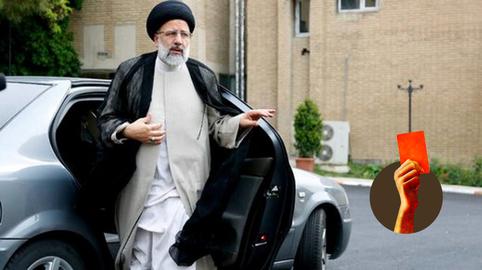
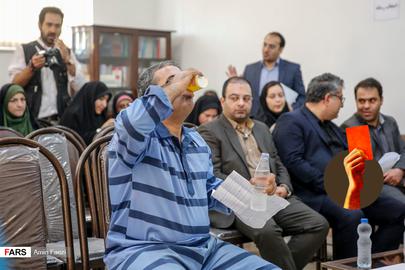
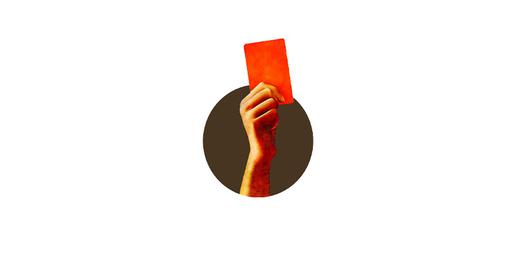

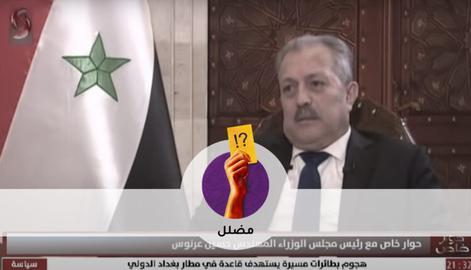

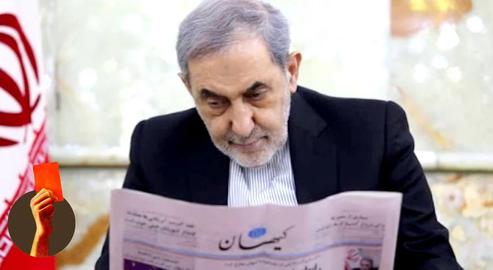

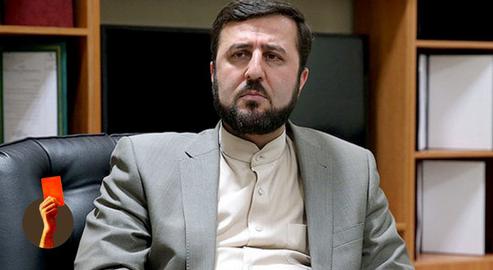
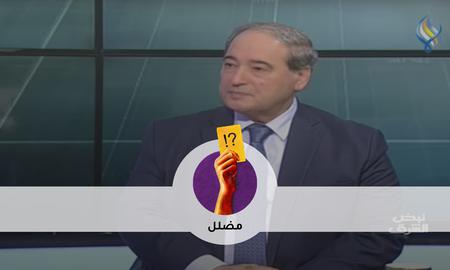
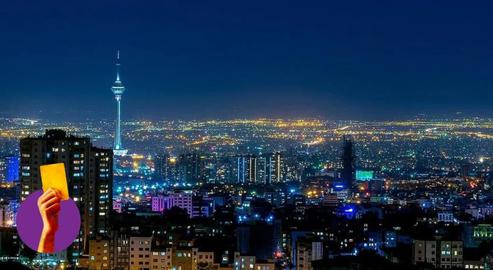
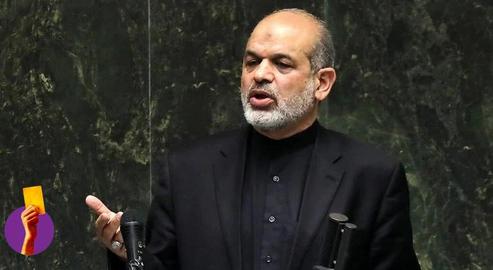
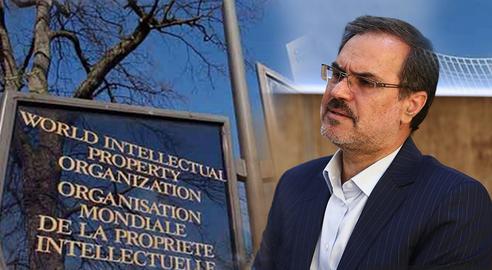

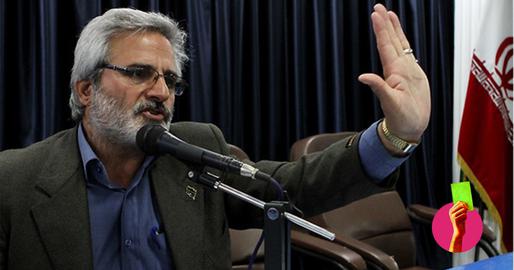
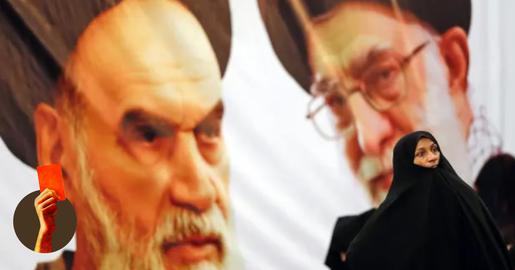
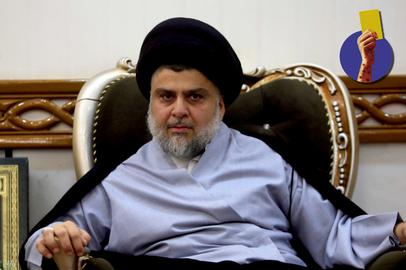
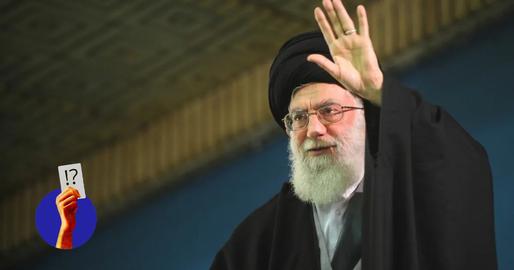
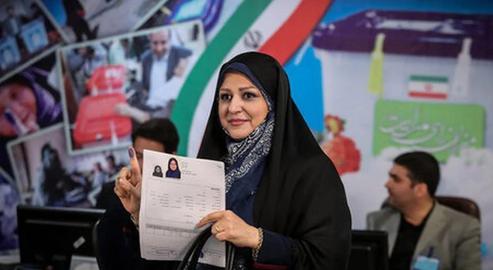
comments